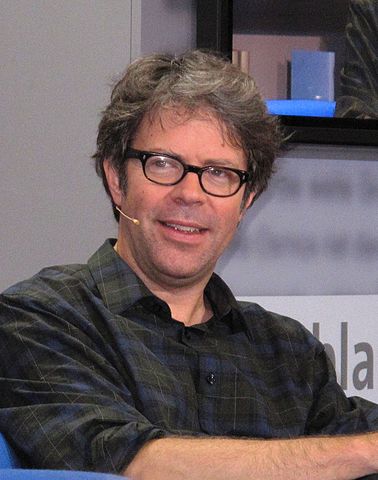 Jonathan Franzen is one of America’s most famous and successful novelists, but don’t take that to mean he enjoys living a public life.
Jonathan Franzen is one of America’s most famous and successful novelists, but don’t take that to mean he enjoys living a public life.
While most well-known for his ambitious and sprawling novels like The Corrections and Freedom, Franzen is also an outspoken advocate for a life free of the petty distractions of technology — the kind of environment he gets from living in Santa Cruz.
Franzen splits his time between living in Santa Cruz and New York. Girlfriend Kathryn Chetkovich was what originally drew Franzen to our little town, but he’s said he stayed for the unique culture and peacefulness he can find when he works here.
Although Santa Cruz has never been directly featured in any of his fiction, you can definitely find themes that resonate with Santa Cruz’s particular ethos in his work, especially in his most recent novel, Freedom.
Freedom, much of which was written on the UC Santa Cruz campus, centers around the life of an American family over many years. They begin as liberal idealists, particularly the protagonist, Walter, whom Franzen has acknowledged is somewhat modeled after himself. This idealism eventually gives way to compromises, after the family moves to Washington, D.C. and Walter goes to work for an unusual environmental group that takes money from Big Coal lobbies.
At one point in the book, Walter goes into a huge rant about the contradictions in American life, and the huge waste of resources people impose on the planet, even going so far as to say that people are “a cancer on the Earth!” This kind of viewpoint, seen as fairly radical most places, is well acknowledged in Santa Cruz, which has long been a leader in sustainable living.
At the same time, the protagonist in Freedom is often at odds with himself. Franzen writes of Walter that, “Each new thing he encountered in life impelled him in a direction that fully convinced him of its rightness, but then the next new thing loomed up and impelled him in the opposite direction, which also felt right.” Santa Cruz, like any community, also has its fierce debates within itself. For example, the decision over whether or not to start a desalination plant has been argued over for years, with fierce opinions on each side.
There’s also the quest for identity in this small town that very much relates to many of Franzen’s themes. The Corrections is set in the nineteen-nineties, and one of its major themes is the transition from an industrial economy to a technology-driven economy. Santa Cruz is torn between its old and new identities all the time: is this a counter-culture haven with a bunch of hippies and drifters, or a hot spot for startup tech companies and an idyllic tourist destination? The transition from Santa Cruz’s past to its future has been rocky each step of the way, and the economy has always been a huge factor.
At the end of both of Franzen’s major works of fiction, all the characters and plot lines converge into an ending. In a way, this can be seen as a metaphor for Santa Cruz: all different people, businesses, and lifestyles come together to make a town unlike any other. It may be a stretch to say Franzen’s work is inspired by Santa Cruz, but it’s no stretch to say Santa Cruz is, in many ways, like a rich, expansive novel.
Photo Credit: Lesekreis [CC0], via Wikimedia Commons
